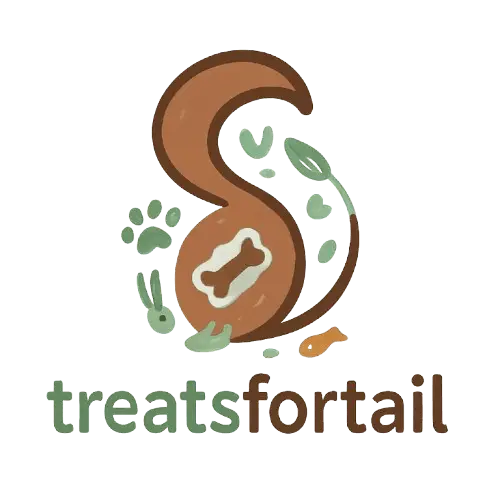Introduction: Meet the Boxer

The Boxer is a medium-to-large-sized working dog known for its muscular build, intelligence, and boundless energy. Originally bred in Germany as a hunting and guard dog, the Boxer has evolved into a beloved companion for families worldwide. This breed is alert, playful, and protective—traits that make it both a loyal friend and a vigilant watchdog.
If you’re looking for a breed with an upbeat personality, strong family bonds, and a high drive for exercise and training, the Boxer might be a perfect match.
Breed Overview: Quick Facts About the Boxer
| Trait | Description |
|---|---|
| Origin | Germany |
| Group | Working |
| Height | 21.5–25 inches (55–64 cm) |
| Weight | 55–80 lbs (25–36 kg) |
| Lifespan | 10–12 years |
| Coat | Short, smooth, tight-fitting |
| Colors | Fawn, brindle, with or without white |
| Energy Level | High |
| Trainability | High with positive reinforcement |
| Good with Kids | Yes, with supervision |
History and Origin of the Boxer
The Boxer’s history dates back to the late 19th century in Germany. It descends from the now-extinct Bullenbeisser, a mastiff-type dog once used to hunt large game like boar and bear. When crossed with English Bulldogs, the Boxer we know today was developed—a dog that combined power, endurance, and agility.
Initially used as guard dogs, police dogs, and even messengers in World War I and II, Boxers quickly became popular as loyal and trainable pets.
Physical Appearance of the Boxer
Boxers are athletic dogs with a distinctively square build, deep chest, and strong jaws. Their expressive eyes and wrinkled foreheads give them a constantly curious or concerned look. Ears may be cropped or left natural (floppy), depending on regional standards or owner preference.
Their short coat is low-maintenance, and their strong body reflects their working-dog heritage.
Temperament: Are Boxers Good Family Dogs?
Absolutely—Boxers are excellent family dogs when raised and socialized properly. They are affectionate, fun-loving, and deeply loyal to their families. Known for their protective instincts, Boxers are often gentle and patient with children. However, supervision is always important, especially with younger kids.
Their playful nature makes them ideal for active households. They thrive when given plenty of attention, structure, and opportunities to burn off their high energy.
Is a Boxer a High-Risk Dog?
Boxers are not inherently dangerous or aggressive, but they do have strong guarding instincts. This can lead to territorial or protective behavior if not managed properly. When poorly socialized or mistreated, any dog can exhibit problem behaviors.
In some areas, Boxers have been wrongly labeled as “high risk” due to their muscular appearance and protective nature. However, Boxers are not on most breed-specific legislation lists and are considered safe, loyal pets in responsible hands.
Proper training, early socialization, and positive reinforcement are key to ensuring your Boxer grows up to be a well-adjusted adult.
Can Boxers Be Left Alone?
Boxers do not tolerate being left alone for extended periods. They are deeply bonded to their families and may develop separation anxiety if left alone too long. This can result in destructive behaviors like chewing, barking, or digging.
If you work long hours away from home, a Boxer may not be the ideal breed—unless you can provide doggy daycare, a pet sitter, or regular companionship throughout the day.
Tips for leaving Boxers alone:
- Start crate training early.
- Provide stimulating toys and puzzles.
- Leave them for short periods, gradually increasing time.
Is a Boxer a Pitbull?
No, the Boxer is not a Pitbull. While they may share some muscular features and energetic personalities, they are entirely different breeds with different origins.
The term “Pitbull” generally refers to a group of breeds like the American Pit Bull Terrier, Staffordshire Bull Terrier, and American Bully. In contrast, the Boxer is a distinct breed recognized by the American Kennel Club (AKC) and has a separate lineage from mastiff and bulldog ancestors.
Training and Socialization Needs

Boxers are highly intelligent and respond well to consistent, reward-based training. They can be stubborn at times, so patience is key. Early socialization is crucial—introduce them to people, other dogs, and new environments from a young age.
Training tips:
- Use praise and treats to reinforce behavior.
- Keep sessions short and fun.
- Avoid harsh discipline—it will backfire on this sensitive breed.
Boxers love to please, and once trained, they excel in obedience, agility, and even therapy work.
Grooming and General Care
Boxers are relatively low-maintenance when it comes to grooming. Their short coat only requires weekly brushing to remove loose hair and keep it shiny.
Basic care includes:
- Bathing: Every 4–6 weeks or as needed
- Nails: Trim every 2–3 weeks
- Teeth: Brush 2–3 times weekly
- Ears: Clean regularly to prevent infection
Boxers are indoor dogs—they do not tolerate extreme heat or cold well and should always live inside with their families.
Health Considerations
Boxers are generally healthy, but they are prone to certain breed-specific issues.
Common health concerns include:
- Heart Conditions: Especially aortic stenosis and cardiomyopathy
- Cancer: Boxers have a higher risk of some types of cancer
- Hip Dysplasia
- Allergies and Skin Issues
- Bloat (gastric torsion)
Always choose a reputable breeder who performs health screenings. Regular veterinary checkups and a high-quality diet will also help maintain your Boxer’s well-being.
Exercise Requirements
Boxers have very high energy levels and need daily physical and mental stimulation.
Ideal activities include:
- Long walks or jogs
- Fetch or tug-of-war
- Agility training
- Puzzle toys or games
- Obedience or trick training
Without enough exercise, Boxers can become bored and destructive. A tired Boxer is a happy Boxer!
Pros and Cons of Owning a Boxer
| Pros | Cons |
|---|---|
| Energetic and fun-loving | Needs lots of daily exercise |
| Great with kids and families | Not ideal for apartment living |
| Loyal and protective | Can be stubborn if not trained early |
| Low grooming requirements | Doesn’t tolerate being left alone |
Fun Facts About Boxers

- Boxers were one of the first breeds used for military and police work in Germany.
- Their name likely comes from their tendency to “box” with their front paws when playing.
- A Boxer named Brandy once held the Guinness World Record for the longest tongue on a dog!
Final Thoughts: Is the Boxer Right for You?
The Boxer is a bold, energetic, and affectionate breed that thrives in active homes with dedicated owners. They need time, attention, and training—but in return, they offer years of companionship, loyalty, and fun.
If you’re looking for a dog that will be your shadow, protector, and exercise buddy, the Boxer may be your ideal match.
Looking for more breed insights? Check out our guide to choosing the right pet for your lifestyle.
👉 For more official breed standards, visit the Boxer breed page on the AKC website.







